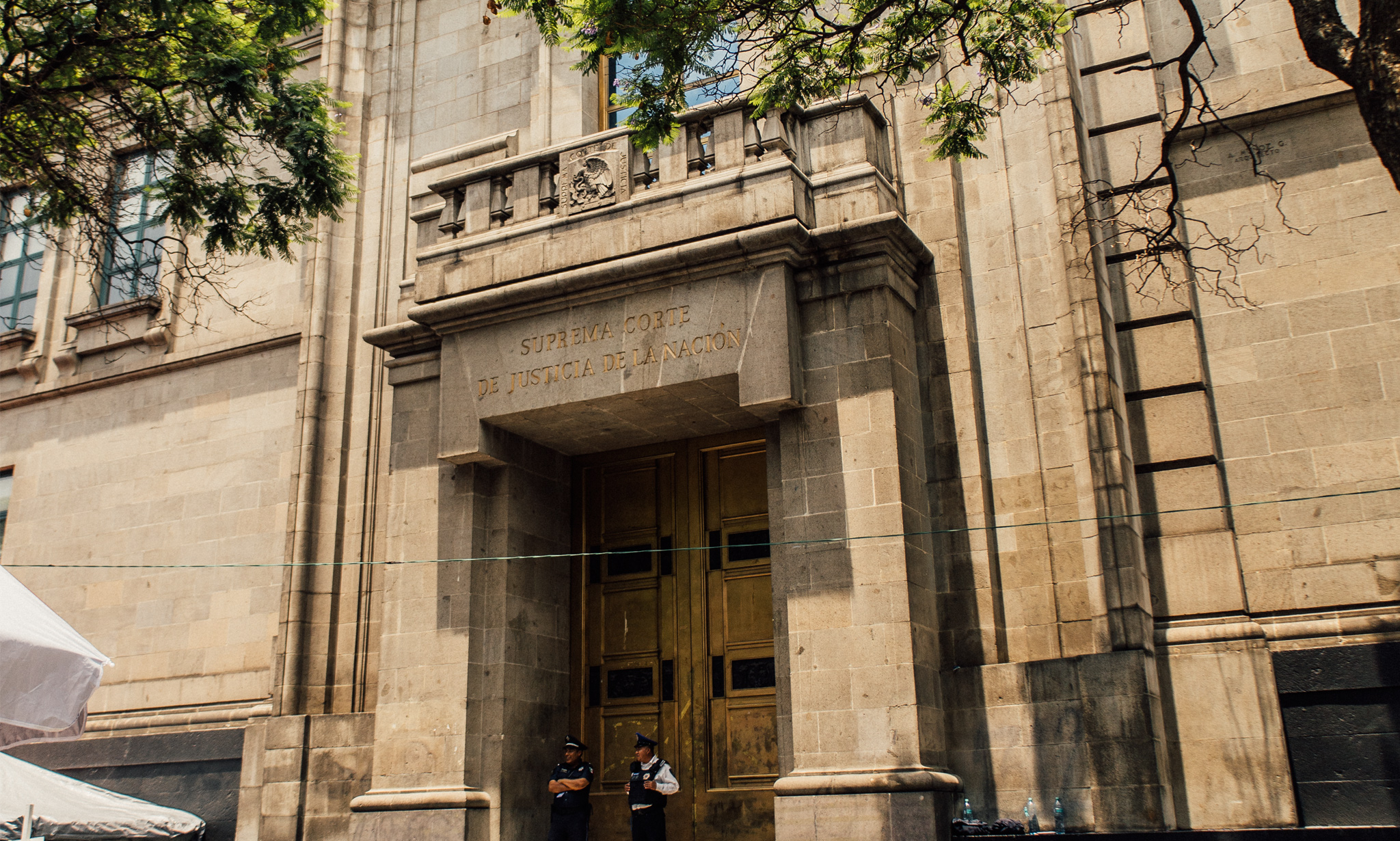A Revolution in the Judiciary
This editorial by Bernardo Bátiz V. appeared in the August 25, 2025 edition of La Jornada, Mexico’s premier left wing daily newspaper. The views expressed in this article are the author’s own and do not necessarily reflect those of the Mexico Solidarity Project.
With the speech of the Chief Justice of the Supreme Court Norma Lucía Piña Hernández on August 19th, a historic era for the country’s highest court concluded. She said so herself, but I add, the important thing is that the judicial reform constituted a true revolution, a bloodless revolution that fundamentally transformed one of the three branches of government, the only one whose members were not directly elected by popular vote.
This profound revolution has a date: September 15, 2024. But it began with the project presented in February of that same year by then-President Andrés Manuel López Obrador, shortly before the end of his term. The initiative was the starting signal for a process that laboriously made its way amid harsh criticism and active resistance from a broad sector of public servants, members of that branch of government. Magistrates, judges, secretaries, clerks, judicial officers, and, of course, also Supreme Court justices participated. Perhaps it was the first time they took to the streets to protest and chant slogans, far from the comfort of their offices.
That historic change finally ended with the approval of the constitutional reform. Appeals to international courts remain pending, and they cannot overturn the reform and will have no more value than a declaration; they cannot oppose the sovereign decision that approved the changes in accordance with the requirements of our Constitution.
The hard data is as follows: in the Chamber of Deputies, the bill passed with 357 votes in favor, 71 percent; in the Senate, the vote was 86 senators in favor, 67.1 percent. The approval of at least 17 of the 32 state legislatures was also required. The requirement was met when 24 local legislatures voted in favor, 75 percent; two states, Querétaro and Jalisco, rejected the reform, and in several others, discussion was postponed.
Before the reform, the judiciary was the least known of the three branches. Neither the media nor the public paid much attention to it. It seemed like a kind of aristocracy isolated from the people, with income and benefits superior to those of other public servants. From time to time, it was the target of criticism. I recall one case when they approved the anatocism, which is the charging of interest on interest [related to the FOBAPROA bank bailout], a vice pointed out by Saint Bonaventure in the Middle Ages as theft under the pretext of a contract.
We cannot forget that of the three branches of government through which the Mexican people exercise their sovereignty, according to Article 41 of the Constitution—the Executive, Legislative, and Judicial—only the first two have historically been elected by the people through direct vote. They reach their positions, or “assignments,” as the founder of Morena called them, through free and direct vote. The third branch, the Judiciary, on the other hand, was traditionally appointed through procedures involving members of the other two branches.
The unexpected reform came as a surprise and provoked resistance from traditional opponents of change. Now, with the intervention of many public servants, specifically from the Judiciary, who, as I repeat, not only criticized the reform but also openly opposed it in various ways. On reflection, a side effect of the reform was that it caused a sector traditionally removed from politics to join the fight to defend its interests.
Despite everything, the reform was passed and is now law; for the first time in Mexico, judges were elected by popular vote, and I think we should celebrate this. From now on, the third branch, like the executive and legislative branches, derives its legitimacy from the direct will of the Mexican people expressed at the ballot box. This translates into greater legitimacy and strengthens autonomy and the commitment to justice, which, according to the classic definition, is nothing less than “giving to each what is his, what is due to him.” Nothing more, nothing less.
I believe we should welcome this transformation that faced so many obstacles, nurture it, and perfect it because democracy is certainly the form of government that entails the most difficulties and requires complicated procedures, but it is also the only one that unquestionably respects popular sovereignty.
One of the most repeated objections was that the popular election of public servants in the Judiciary would jeopardize their independence when issuing rulings; of course, this is not the case. On the contrary, in my opinion, the judges’ freedom of decision is more solid and poses fewer risks if they are elected than if they are appointed.
We must remember that judges resolve conflicts; that is, they must decide which of the litigants is right and which is wrong. That’s why half the world—those who win trials—satisfy the decisions, while the other half—those who lose—are prone to criticize the outcome of the proceedings and often think that “the judge sold out.”
Certainly, there have been cases in the past, and perhaps still are, in which judges fail to rule in accordance with the law or fail to take into account the reality of the facts underlying their rulings. In my opinion, this has never been absolute or widespread. As a litigator, a former prosecutor, and now a member of the Judicial Council, I have appreciated that cases of corruption are rare.
We must protect the freedom of judges, which can be compromised for two very different reasons: the judge can distort justice out of greed, when he or she decides to “sell out” his or her ruling, or when he or she is forced to do so out of fear of a real or imagined threat. A good system of justice administration must seek remedies for both of these potential vices.
-
Workers Party Claims Sheinbaum Electoral Reform Will Eliminate Party System
The socialist party’s leader recalled the democratic spaces that the left managed to conquer with the 1977 & 1996 reforms, a “fruit of countless struggles, repressions, imprisonments, disappearances and even armed uprisings.”
-
Anti-FIFA Challenge: Football Defends the Territory
Mexico City residents are organizing Anti-World Cup Days to protest water theft and gentrification that have accompanied preparations for the World Cup, put on by the corrupt, international criminal consortium known as FIFA.
-
Tridonex Strike in Matamoros to Start March 6th
1,300 workers are expected to strike, demanding the company fulfill its obligation to pay workers in full. Tridonex is owned by First Brands, the US autoparts corporation accused of massive fraud.




